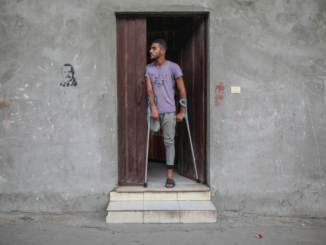
Axios cited two Israeli officials as saying that Qatar, Egypt and the United States were working to prevent the collapse of the indirect talks.
A senior Israeli official claimed that the main sticking point in indirect negotiations between the Palestinian Resistance group Hamas and Israel was whether the prisoner swap would lead to the end of the war on the Gaza Strip and to a permanent ceasefire.
Hamas insists on a clear commitment that implementing the entire swap deal would end the war, but rightwing Israeli Prime Minister Benjamin Netanyahu refused to agree to that condition.
The Israeli official indicated that the mediators are focused on trying to find a formula that the two sides can agree on, but no breakthrough has been achieved in this regard, the Axios news website reported.
Axios cited two Israeli officials as saying that Qatar, Egypt and the United States were working to prevent the collapse of the indirect talks between Hamas and Israel on the swap deal.
For its part, the Washington Post cited an official familiar with the negotiations as saying that CIA Director William Burns traveled to Qatar on Sunday to prevent the talks from collapsing.
Diplomatic sources familiar with the matter revealed that Burns extended his stay in the Qatari capital throughout the day on Monday.
Sources told Al-Jazeera that the Hamas delegation left Cairo on Sunday for Doha after two days of negotiations.
The movement’s political leadership will meet today in the Qatari capital to discuss the results of the Cairo talks.
On Saturday, a Hamas delegation and Qatari and American officials arrived in the Egyptian capital Cairo to participate in ceasefire negotiations and prisoner exchanges. Israel, however, refused to send a delegation.
This comes at a time of increasing pressure from inside and outside Israel on Netanyahu to conclude a deal with Hamas, which he insists on rejecting, stressing his determination to continue the war and invade the southern city of Rafah.
Israeli media, as well as Israeli politicians, security chiefs and opposition Knesset lawmakers, accused Netanyahu of trying to prevent the prisoner swap deal with Hamas for personal gain.
The deal could create a serious political problem for Netanyahu because two of his key coalition partners – far-right ministers Bezalel Smotrich and Itamar Ben-Gvir – have threatened to leave the government if the deal is approved.
Without the two extremist politicians, Netanyahu would be politically exposed, his coalition would collapse, and early elections would likely be called.
According to recent polls, Netanyahu is likely to be defeated if elections are held today.
(AJA, PC)







